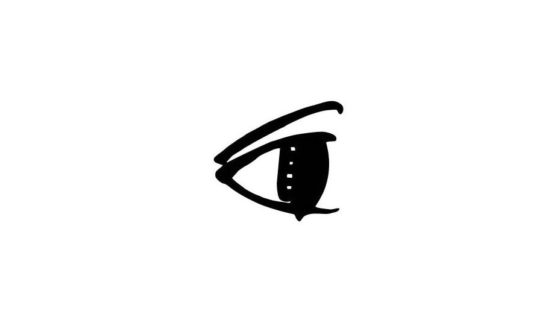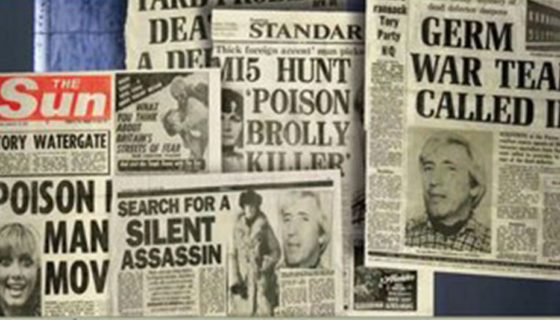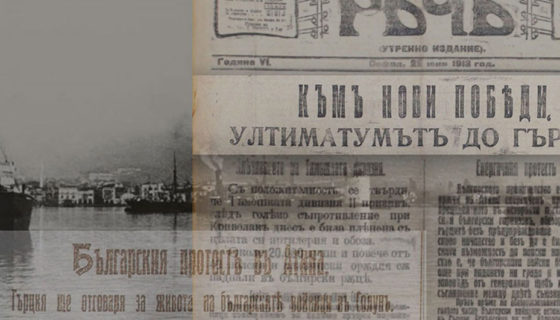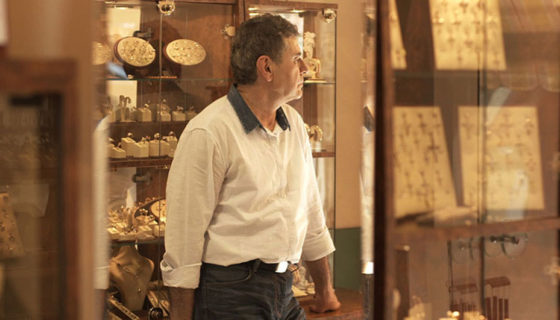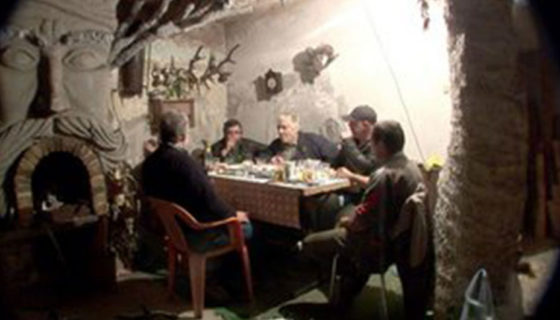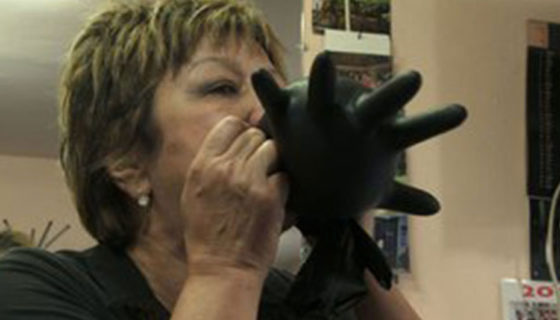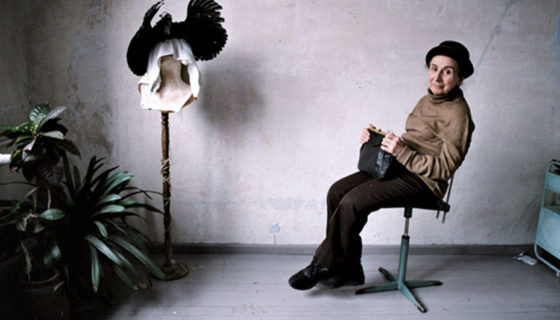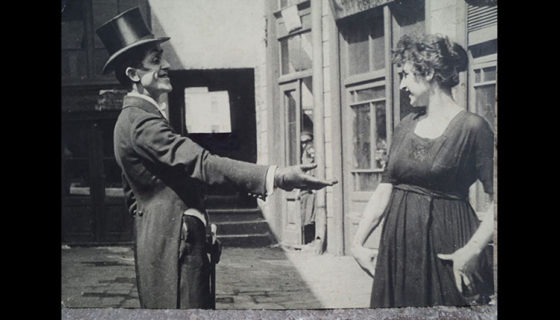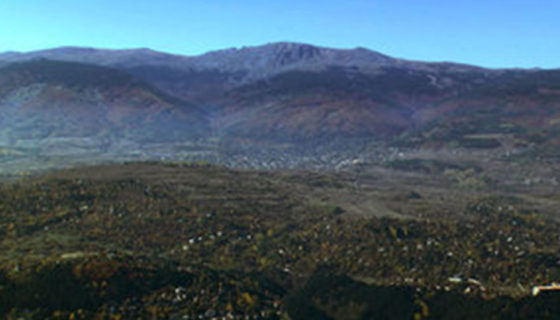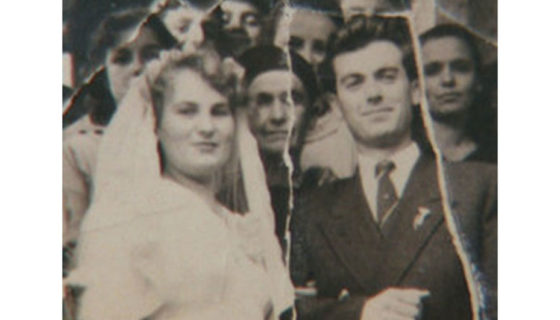- This film tells of the environmental destruction of the valley between Varna and Devnya. The heavy metals in the soil are a time bomb. The film poses the question who allowed the destruction of the local crabs in favour of Sodi-Devnya chemical plants.
- is a historical documentary about General Skobelev and the heroic age of Bulgaria’s Liberation. The story is told by famous 19-century scholars: military historians, writers and public figures with writer Boris Vasilev; Aleksei Leonov, astronaut and president of the International Skobelev Committee; Prof. Andrey Pantev; Prof. Bozhidar Dimitrov among others. Unique footage from the early 20th c. is used in the film as well as photos from the Bulgarian and Russian national archives.
- A movie about the poverty and loneliness of the people in a village – bloodstained by political violence in 1923, and nowadays, fallen victim to politicians and cheats.
- The film recounts how the totalitarian regime flirted with the intelligentsia from the end of the 1960’s to the middle of the 1980’s. Georgi Markov was a direct witness and participant in these relationships and provided his viewpoint from afar.
- London 1978: Bulgarian writer and dissident, Georgi Markov is poisoned to death. The assassination plot reads like a James Bond film: an umbrella is supposed to be the murder weapon. For years the British and Russian secret services blame each other. Still one of the biggest murder cases in history remains unexplained. 35 years later the director sets out to solve the mystery. Through his lengthy enquiries he succeeds in getting the prime suspect, the Bulgarian agent Francesco “Piccadilly” Guillino to appear in front of the camera. A gripping documentary crime thriller that deals with the history of the Cold War and reveals the current intrigues within our secret services.
- Theodora Zakharieva committed herself to a social cause and broke through the health system, winning a case against the Healthcare Ministry for compensations for retermitted treatment. She went on a hunger strike and staged protest rallies at the Ministry of Healthcare and the Council of Ministers, due to the lack of medication for oncology patients. Prior to the hunger strike, she was offered personal medication so that to give up the idea to go on a strike, but she rejected the offer, stating that her protest was for the sake of all the patients. The documentary shows the dramatic conflict through Theodora’s experiences.
- Experts and amateurs from different spheres comment the prerequisites for errors and the methods of coping with them. The mystery and complexity of real life makes every effort to finally deal with errors pointless.
- A young woman is searching for the truth about her great-grandfather, an Inter-allied War hero, Nicola Magdin, following in his footsteps one hundred years later. His last days on the front, in a POW camp and being reported missing after that are veiled in mystery. During her investigation, the granddaughter finds facts about a tragedy nobody wants to talk about.
- This a nostalgic journey to… our present; a documentary about a small town in Bulgaria situated to the left of the main world routes, inhabited by descendants of Bulgarians expelled from Aegean Thrace and Macedonia, which nowadays lie outside Bulgaria. The film brings together history and memories, love and envy, camels and buffaloes, broken vocations and pride, shyness and self-confidence, the search for family roots and emigration, a comedy festival and personal tragedies, dolmens and tipis, destruction and creation, romance and reality, essence and insanity, oneness with Mother Earth and alienation, happiness and misery, despair and stoicism.
- A film story about a man who loses his only home because he tries to legally build a dairy farm under prime-minister Videnov.
- The setting: a garage in sofia turned into a hairdresser's salon. The characters: clients who confide both their sad and funny stories dated back to the transition period from socialism to capitalism, which started in 1989 and hasn't finished to date…
- Vasil Gendov’s ambiguous life story impresses with an array of ‘starts’: he made both the first Bulgarian feature film ever and the first talking movie. He was the founding father of the Bulgarian National Film Archives and the Union of Bulgarian Filmmakers. Alongside being a film pioneer, he was a controversial person. Drawing on documents and evidence of that time, the documentary seeks to unveil his complex character in the context of the dynamic social and political situation in this country in the early twentieth century against the backdrop of the cultural development of Europe and the Balkans.
- Memoirs of Countess Anna de Grenaud-Stanchoff range over some of the most important and dramatic periods of Bulgarian modern history – from 1887 to 1915. Even nowadays, her penetrating look makes fit for interpreting countless aspects of the palace, diplomatic and political life of the country. The film tries to find in the memories of the past the answers to questions of today, commented by the grandson of the Countess – eminent diplomat and public figure Ivan Stanchoff.
- "The film resulted from my desire to take some extraordinary musicians out of the context in which we are used to seeing them, and put them on a European stage, where they could be appreciated for their virtuosity. The film tells of their journey from small Thracian villages and gypsy slums to some of the most prestigious stages in Brussels, where they performed for very pampered and sophisticated audiences." Zlatina Russeva
- A film about a woman’s folklor chorus. Several years ago, when the chorus gained worldwide fame, its conductor Zdravko Mihaylov suddenly died. Today his son Ilia Mihaylov starts anew. Will he succeed, who are the women singers, how do they cope with their everyday problems, why cannot they live without the song in spite of the hard times they live in?…
- Dimiter Dimov has written three novels, two of which have been among the most popular and best-selling over the hundred years after he was born. Which is inimitable in Dimiter Dimov’s mentality and sensitivity? Which are the landmarks in his personality-building process? What are the secrets of his unique fictional world? Which is the weak point of his creative insights? The film is a quest for answers to these questions through the works of the writer and the memories of his loved ones.
- The film is a story of the different patterns of marital relations in some seemingly monogamous animals and birds. Does infidelity, as we people perceive this phenomenon, exist in nature? Is there a natural mechanism, regulating the reproductional processes? Using the means of expression of a popular science film this film gives an answer to the aforesaid questions.
- "In a small nice restaurant in Istanbul I was having dinner with friends from various Balkan countries – a Greek, a Macedonian, a Turk, a Serb and me, Bulgarian. There I heard the song whose story is told in the film. As soon as we heard the song everyone started claiming that the song came from his own country. Then we started a fierce fight – whose is this song? I wanted to find out why the others also claimed the song was theirs…" Adela Peeva

